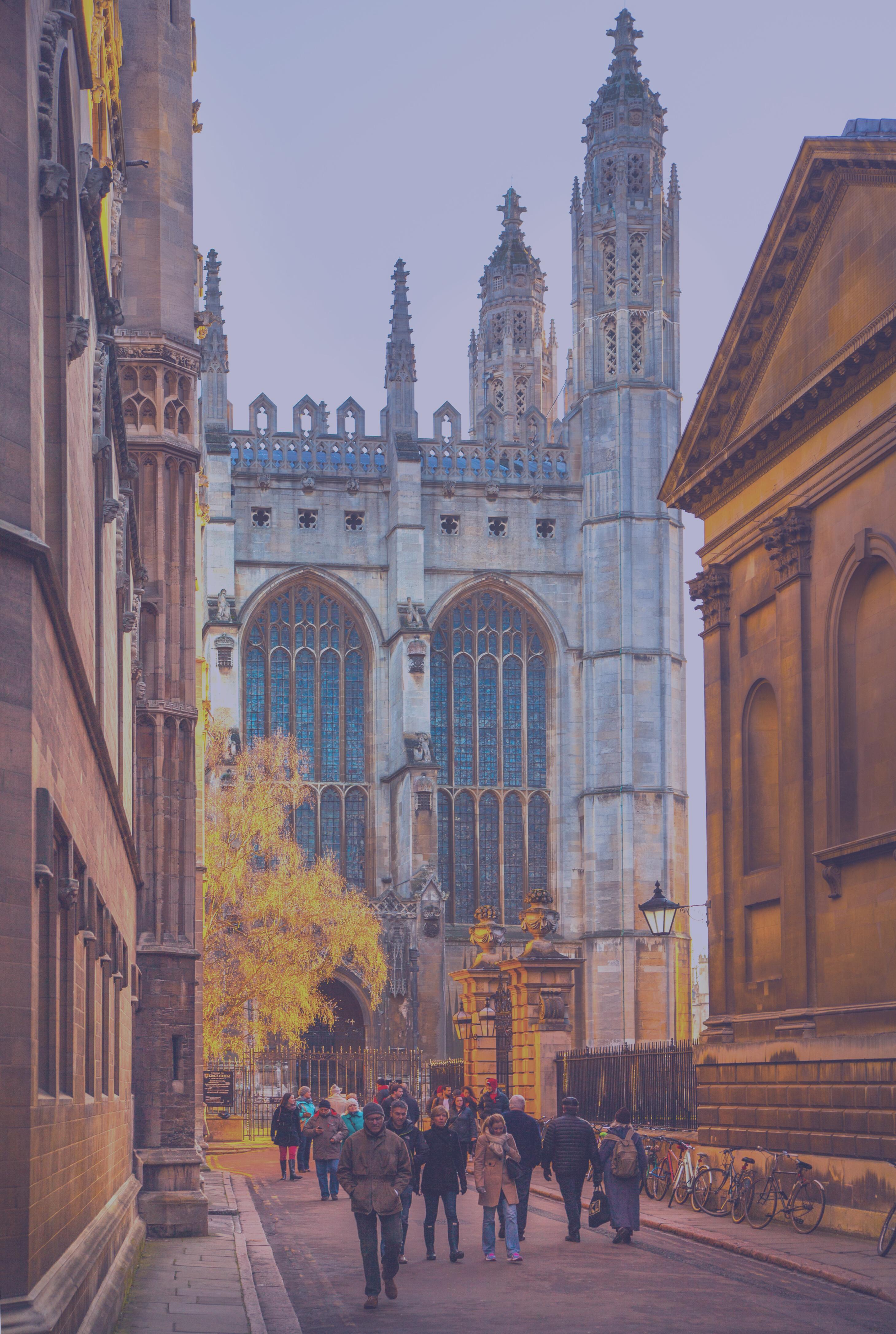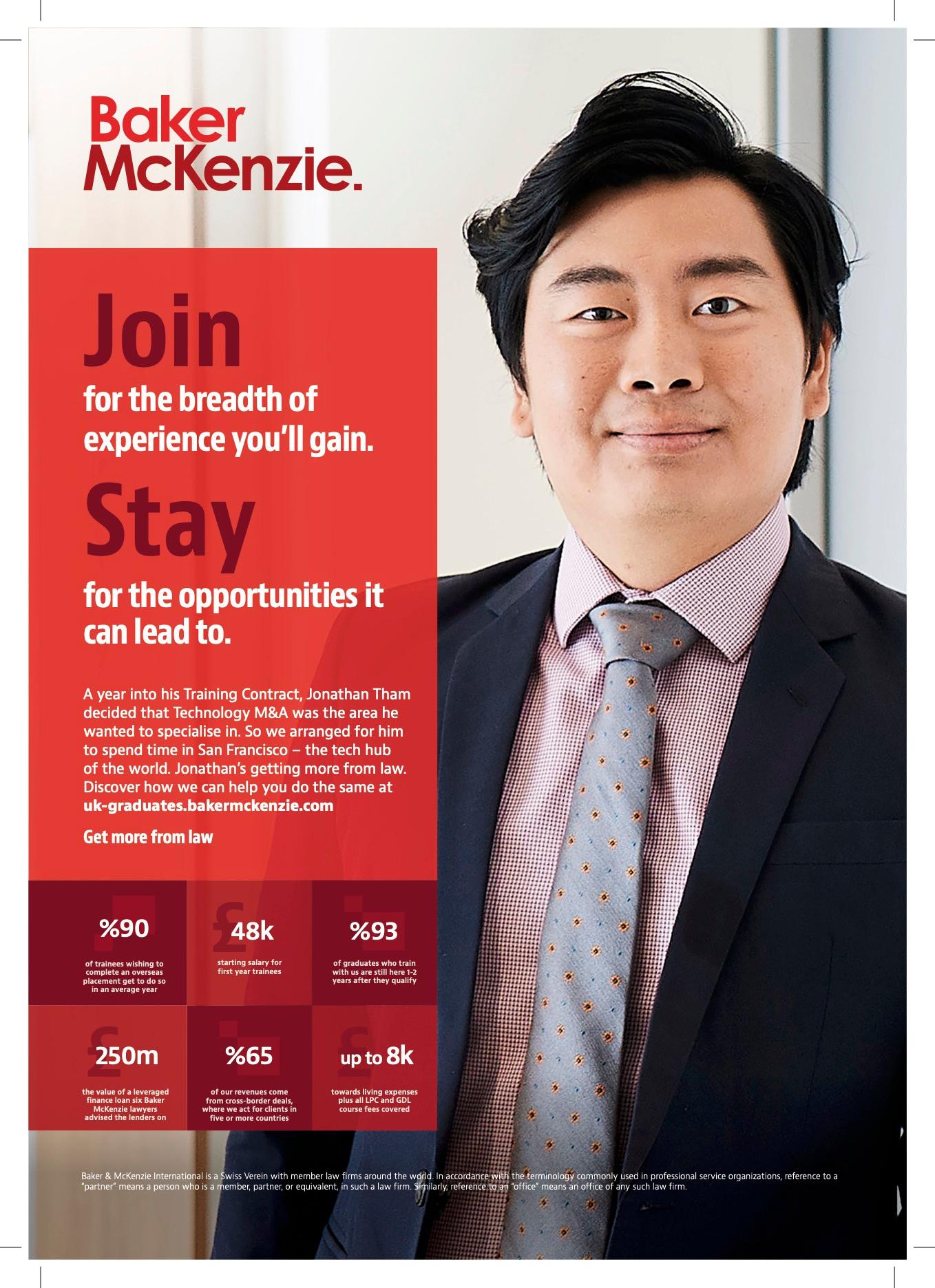










For just £40 you can become a Lifetime Member of the Cambridge University Law Society. Lifetime Membership with CULS gives you access to a wide range of events and projects, as well as providing a far reaching community that stretches back over a century. Our members span all tripos subjects and colleges
As a lifetime member, you will receive:
Discounted tickets to our Flagship Events, including future Law Balls, Lent Galas and our Summer Garden Parties
Free access to our famous weekly Socials at venues across Cambridge, including free food, drinks and great company
Free access to our mailing list, careers, networking and other events hosted in collaboration with different firms and representatives from a range of backgrounds and legal sectors
Access to our vast alumni network, during your time at Cambridge and beyond, including access to our dedicated alumni events in London
Opportunities to apply for the Freshers’ Committee, a variety of subcommittees, such as for the Pro Bono Department and Law Ball, as well as the Main Committee of one of the largest and most active societies in Cambridge What does membership include?
How to join:
(1) Head over to https://www.culs.org.uk/
(2) Click “Join Us” on the far right hand side of the page
(3) Fill out your details
(4) Confirm & pay!

SECTION 1 - Studying Law in Cambridge
MAKING NOTES
SUPERVISIONS : A SUPERVISOR ' S GUIDE
TIME MANAGEMENT
SIDGE : WHERE TO EAT
CAMBRIDGE CAFES TO WORK IN A DAY IN THE LIFE
FAQs
SECTION 2 - Careers in Law
HOW TO NETWORK
INTERVIEW STRATEGY
COMMERCIAL SOLICITOR
HUMAN RIGHTS
BOUTIQUE FIRMS
BARRISTER ROUTE
IN - HOUSE TCs
FAMILY LAW

Aaron Brooks - CULS Per Incuriam Editor in Chief

Like anything you’ve studied so far, having a good set of notes is essential to do well in Law: there is nothing worse than getting to the end of the year and only having random documents full of random bits of reading to base your revision off! Start experimenting with how you take notes early in Michaelmas and use your College-based mocks (usually in January) to figure out what works best for you
Most people recommend using lecture handouts as a good framework for the content you need to cover, as well as providing a logical structure for your revision notes to follow. However, it is safe to say that the quality and depth of lecture handouts vary, so do be aware of this! It is not advised that you rely entirely on lecture handouts for the content of your notes, but they can help when you realise you have hundreds of pages on a supervision reading list and need to decide whether specific pages are necessary The luxury that we have this year (if you can call it that…) is that lectures will be online This means you won’t need to rush to write down everything the lecturer says, but can spend time listening and figuring out which areas are really important (usually the lecturer will flag these up or spend a
long time talking about it)
It is useful to note (no pun intended) that most people do not write their condensed, finalised notes during term. To be honest, there isn’t much time to bring together all of the information and present it in a way you understand until you’ve had time to go back over what you’ve learnt During term, most people rely on a mix of lecture handouts and specific supervision notes (usually consisting of the necessary reading i.e. textbook, cases and articles) Your final notes should bring all of these together!
When it comes to making your final set of revision notes that you will use during exam season, you can try out different formats or simply do what you’ve done for previous exams There are some key things your notes should include, regardless of the format:
Key cases should have a dedicated case note, in whatever format you choose Case notes, as you will learn, should include the ratio decidendi (the reason why the case was decided as it was), any key legal principles that arise and relevant obiter dictum (judge’s opinions which are not essential to the decision,
but will be useful for discussion purposes). It is worthwhile noting down whether there are any dissenting judgments and including the reason why the judge dissented You may choose to read articles/case notes on a particular case: if you do that, it is useful to include those notes close to your own case analysis
Relevant academic debates taken from reading throughout the year. You should be able to briefly outline the author’s position (and I recommend pulling a quote or two). It may be useful to note down whether or not you agree with their position and why.
Any relevant legislation should be picked up on in your notes, with specific references to important sections You may find that case law provides guidance on how to read certain sections, so make sure you put that in somewhere close to the legislation It might be useful to annotate important legislation!
Like any set of notes, you will need to find a way to condense the content of the subject. Draw together textbook reading, lecture handouts and other sources to make notes that you understand.
James Goodwin - Former Cambridge Supervisor

James Goodwin is a barrister at Wilberforce Chambers, and supervised Contract Law at a number of Cambridge colleges
Supervisions are the most valuable aspect of the Cambridge law course Yet, there is very little advice on actually what to do in a supervision, and how best to prepare. For first-years especially, the prospect of sitting for an hour under interrogation, or in excruciating silence, is a daunting one After a year sitting on the other side of the desk, I thought it would be useful to offer a supervisor’s point of view on how to get the most out of a supervision This piece is primarily aimed at those new to the law course, but even those who have been in Cambridge for a while might appreciate a refresher for the start of the year
An obvious point, but the most important It is embarrassingly obvious when a student hasn't done the reading. More significantly, it’s a complete waste of time for everyone concerned The best way to plan ahead is simply to look at the reading list, and work backwards. Estimate how long it will take to get through the bare minimum of textbook and article reading, then make sure to put the library hours in the diary. But good preparation goes beyond simply doing the reading It’s much more important to engage with the reading; what are the themes, how does this area link to others, is the law satisfactory? The student who turns up with meticulous notes, but not a single question to ask or point to make, has misspent their time. By far the most productive supervisions are when students have a list of issues that they have found interesting, difficult, or completely incomprehensible.
The ability to prompt an interesting discussion is more valuable than making sure your notes are correctly colour-coded
Some supervisors are happy to guide the supervision; others are not An hour can last for a very long time if punctuated by crushing silences. Some supervisors will simply end the supervision if discussion comes to an end If you find yourself in difficulties, there are several options as to where to start in a supervision. The best way to begin is with the areas you find most difficult, or most interesting It’s tempting to focus on the topics you are comfortable with, but remember that supervisions are meant to challenge and stretch you; they are not an opportunity to run through the topics you understand perfectly well And on the topic of difficult issues - even if you’re completely lost, you can always ask for the supervisor’s take on an issue. Of course, there’s a fine line to be trodden here: supervisors may resent being asked for a summary of the law But if you can show that you've done the reading, and are still finding something tricky, then any requests for a precis are likely to be better received As for questions which a supervisor might ask of you, what is to be avoided in response is silence. Be prepared to give an educated guess if you don't know the exact answer It’s an incredibly useful exercise to try and reason from first principles And from the supervisor’s point of view, having a go at an answer is always appreciated. It’s also amazing how it can help with memory; you will invariably find that you will subsequently understand and recall something if youve talked it through in a supervision, particularly if you required a little guidance to get to the right answer
Quite apart from academic law, for those interested in a legal career, it’s obvious that lawyers are expected to give answers to legal questions constantly: it’s good to get into the practice of answering on the spot. If all else fails, an extremely useful exercise is to ask the supervisor whether the group could work through a problem question together This will usually generate good discussion, and throw up the difficult issues that the supervision is meant to be about.
It can sometimes be useful to do a proper footnoted essay, but it’s not brilliant exam practice As a general rule, it’s probably sensible to use earlier pieces of written work as aides to consolidate understanding. Towards Easter, written work should be as close to exam answers as possible From my point of view, there is a golden rule for problem questions and essays, respectively. In problem questions, structure is allimportant In essays, make an argument It’s all about making your answer as easy and interesting to read (and mark) as possible Essays in particular can often be improved markedly, simply by a change in emphasis. A useful point to bear in mind is that essays should mimic journal articles, rather than textbooks Answering the question set is, naturally, all-important, but there is often a subtext to be addressed; is the law in this area satisfactory? If not, how could it be improved? What policy issues pervade in this area?
Questions you shouldn’t be afraid to ask (a) Questions about the basics. You should never be averse to asking questions which appear basic, or concern fundamental issues. You’ll often be surprised at how very interesting discussions are generated by questions which at first seem glaringly obvious And, of course, it’s far better to get any misunderstandings out of the way sooner rather than later You’ll be surprised by how many others will have had the same difficulties.
(b) How to answer exam questions There’s nothing wrong with asking for practical advice on approaches to exam questions. Supervisors tend to fall into two
groups: those young enough to remember doing exams themselves, and those who are heavily involved with the actual setting and marking of exams. In either case, they should be a font of useful advice about the best way to engage, rather than enrage, an examiner
(c) What your supervisor’s personal view on an issue is There’s sometimes a feeling that this question is somewhat taboo. I certainly felt nervous about asking my supervisors what they thought about the issues under discussion. But, bearing in mind that a legal academic is essentially paid to have opinions about law, it’s absurd not to utilise what they have to offer The only thing to guard against is treating your supervisor’s view as gospel Law is built on disagreement; don’t be afraid of challenging views which are presented to you.
supervisions
Supervisors are usually happy to answer questions by email For the sake of politeness, it’s good practice to go to a textbook or a case first, and then only email if you haven't been able to find the answer there Equally useful, however, are your fellow students Cooperative learning is a real no-brainer; so long as everyone pulls their weight Whether it’s a quick chat about your reading, pointing out something particularly useful you’ve come across, or even proof-reading one another’s written work, working with other lawyers is incredibly helpful Some of my most useful hours preparing for supervisions as a student were spent chatting through the issues over a couple of games of FIFA in a friend’s room.
If any of the above has seemed self-evident, that can only be a good thing. But my experience seems to suggest there are a great number of students who could get a lot more out of supervisions. Even a subtle change in how you prepare for, or conduct yourself in, supervisions might have a profound effect on how well you do at Cambridge, and how much you enjoy the law course

Abby Pope - CULS Pro Bono Coordinator

You will quickly learn that studying Law at Cambridge is intense. Supervisors may set up to 200 pages of essential reading for each supervision, expecting 15-20 hours of preparation. Alongside lectures, extracurriculars, society events and socials, this can easily become overwhelming.
A key piece of advice is to set limits to studying. One way is to work a 9-5: study up to seven or eight hours during the day (including lectures and supervisions!), and have evenings off Alternatively, you could divide the day into morning, afternoon, and evening, and only work two out of three periods Working too much will mean you become inefficient, or worse, burnt out
Fitting in extracurricular activities around your studying is really helpful to avoid this. For example, rowing is a popular sport that many take up at Cambridge As outings often take place early in the morning, I can spend over an hour with my crew before lectures begin
Similarly, many CULS speakers or social events are held in the evening, forming a natural end to my day. Having lectures online this year means you can schedule them in whenever works best for you.
When tackling supervision sheets, remember that they are not a checklist! Essential reading is often indicated, while further reading is a suggestion of what you could explore later on While further reading is important in order to do well in essays, the
vacations may be more appropriate for tackling it I did the majority of my further reading as part of my revision.
Finally, don’t forget to help each other out! In subjects with lots of cases which don’t need to be read in depth, it can be useful to divide them between a few of you and share notes Sharing the burden with friends, building good work patterns and taking time for yourself is really important to survive the intensity of a Cambridge term.
Some of the activities Abby has been involved with over the past year alongside her degree include:
Learning to row with her college boat club; becoming Womens' Novice Captain at First and Third, Trinity Boat Club
Participating in a language course with the Cambridge University Language Centre
Participating in yoga classes
Attending talks and events ran by CULS, the Cambridge Union and college societies
Working with CULS as one of the Pro Bono Coordinators
Chantelle Fard - CULS Secretary

Whilst Sidgwick site is home to a number of other humanities-based faculties, standing proud and majestic in the heart of it is our law faculty. All lectures are held here, and the library is a great (and popular!) place to knuckle down and get some work done. However, just as – if not more important –as studying, is refuelling ourselves and making sure our bellies are full! Here is just a brief guide to the best places to do just that for a law student, with an honest take on each:
This is the only café actually based in the law faculty building
You tend to see a queue as students rush there for a quick caffeine fix just before and after lectures
Also have delightful paninis! Pretty extensive range but some favourites include a chicken, pesto and cheese melt (amongst many others)
They also serve up the most satisfying samosas and sausage rolls!
There’s a decent amount of seating here with tables as well, but often most people tend to grab and go
The only annoying thing is that minimum £3.00 spend in order for you to pay by card – which can be a bit of a nuisance
The buttery is located opposite the Economics faculty, just a stroll away from the law faculty
Here they serve the most AMAZING cookies (literally melt in the mouth heaven)
Also a decent selection of wraps, salads and pastries
The crowd here includes a broader mix of humanities students, which is nice when you want a break from lawyer stress
The buttery has recently been refurbished, so the interior rather nice and modern
Seating wise, there is a reasonable seating area, with additional space outside
These are just some of the key places at Sidgwick site, but if you find yourself feeling more adventurous, then you can always pop into town (market square is my fave), and sample some of the delicacies Cambridge has to offer.
This is located just next to law faculty – about a 20 second walk away, if that even
Also known as the ‘Law Café’, due to it being notorious for housing stressed lawyers, and there is generally quite a matureish crowd (often professors and supervisors etc)
Very reasonably priced variety of food – both hot and cold – including jacket potatoes, wraps and salads
Generally very busy though, and hence hard to get to find space
However, they do have a nice outside seating area which is rather lovely in the sun!
Newnham Café (Iris)
Very lovely place to work
Located just across the road from Sidgwick
Here there is also a wide range of humanities students, and generally quite relaxed vibes
Come for the nice and open workspace, stay for the nice soup and pastries
Also delicious chai lattes!


M&S Café
Rebecca McNeill - CULS President
The Locker Café
Location: 54 King St, Cambridge CB1 1LN
Serving amazing food (arguably the best avocado toast in Cambridge) and coffee at affordable prices, The Locker Café is a clear frontrunner on our list. It has a homely atmosphere and friendly ambience, with the ground floor usually filled with brunching young mums and friends catching up and coffee fuelled students working on the top floor
Location: 6-11 Sidney Street, Cambridge CB2 3HH England
A hidden gem right in the centre of town, the M&S café can be found on the top floor of M&S Food Go for the best views of market square and to feel like you are not in Cambridge; the typical customers are usually locals, particularly of the older generation!

Grads Café

Michaelhouse Café
Location: Michaelhouse Café, St Michael's Church, Trinity St, Cambridge CB2 1SU
Located in a chapel beside Caius, Michaelhouse café is a beautiful place to study. Sitting at a table on the mezzanine allows for full views of the 19th century building and can be a great relief from the sometimes claustrophobic city centre The scones are also delicious
Location: Mill Lane Granta Place, Cambridge CB2 1RU England
Grads café is probably the objectively best café in Cambridge due to a number of factors. Firstly it has stunning panoramic views of the river Cam, Darwin and Queens’ Secondly, they serve great coffee and lunch options at affordable prices Thirdly, the café is open and airy with plenty of seats And lastly and possibly most importantly) it stays open until 8 30pm As a Girtonian who likes to stay in town if I have plans in the evenings, I’ve found this is the perfect place to work.

Yasmin Dugdale - CULS Vice President

Based on Thursday 17th October 2019
9am: Wake up (Emmanuel College)
9.40am: Walk to Sidgwick Site
10-11am: Law of Contract Lecture (Law Faculty)
11-12pm: Supervision Reading (Squire Law Library)
12-1pm: Civil Law II Lecture (Law Faculty)
1-2pm: International Law Lecture (Law Faculty)
2-2.30pm: Lunch (Iris Cafe)
2.30-3.30pm: CULS Law Ball Committee Meeting (Law Faculty)
3.30-5pm: Supervision reading and tidying up lecture notes (Seeley Library)
5-6pm: Civil Law II Supervision (Clare Hall)
6-7.30pm: Catch up with some friends (Selwyn Bar)
7.30-9pm: CULS Social - Tapas & Sangria (La Raza)
9pm: Walk back to Emma to relax and get ready for the next day (Emmanuel College)
Hannah Obie - CULS Socials Secretary

What textbooks to do I need?
Your supervisors will tell you what textbooks are needed for that course so wait until they let you know before getting anything!
Where should I buy my textbooks?
There are several options for buying textbooks. Firstly, you can buy them from law students in the year above (perhaps your college parents) when you arrive Alternatively, if you would rather your textbooks be new, you can buy them online or from Heffers Bookshop on Trinity Street in Cambridge who price match online stores It is not necessary to purchase all the books on your reading list, college libraries and the Squire Law Library are well stocked
Can I borrow books from the Squire Law Library?
The Squire is a reference library so undergraduates can’t take the books from the library Instead, you can borrow books from your college library or read them online using iDiscover
How do I find a case?
Case judgements can be found on websites like Westlaw, Lexis Nexis, JustisOne and HeinOnline Your raven account will give you access to these websites. To find the specific case you should search the citation which follows the case name
How many essays will I write a term?
Each supervisor will ask for 2 essays a term. In first year, you will be taking 4 papers so this works out at 8 essays over the 8 weeks All supervisors will ask for the essay at different points so make sure you read their emails thoroughly to know when to have it handed by
How can I meet law students from other colleges?
Attending CULS events is a great way to socialise with law students from other colleges Participating in more formal events like Mooting or Pro Bono is a great way to work with other law students Alternatively, attending socials is a great way to socialise informally.
Who do I speak to if I’m struggling?
There is a wide range of support at Cambridge for whatever problems you may experience If they are personal then your tutor is your first point of contact Alternatively, if you have a problem relating to your degree then you can speak to you director of studies. It is really important that you speak out if you ever have a problem, your DoS and supervisors will be really understanding but you have to make them aware of the problem in the first place.
Supo: Supervision, a small class with one academic and 1-5 students
Vac Scheme: Vacation Scheme, paid work experience with a commercial law firm which usually occurs during your second year and can potentially lead to a TC
TC: Training Contract, the two year in-firm training period to qualify as a solicitor. You sit in multiple practise areas to get a feel for which one you wish to qualify in to.
Moot: A moot or mooting is a mock court hearing, participants will receive a case, research the relevant law, prepare submissions and present in the mock trial against other participants.
Sidge: Sidgwick Site, the site where the law faculty is located along with other humanities faculties, libraries and cafes.
Stash: Merchandise that different clubs and societies sell e g CULS stash
PQ: Problem Question, if not asked to write an essay you’ll be given a problem question which is a set of facts from which you will identify the legal issues and solutions
Week 0: The week before term officially starts during which you settle into college before attending contact hours

Chantelle Fard - CULS Secretary

What is networking?
Networking is a common ‘buzzword’ that you’ll come across very frequently
It’s essentially just about interacting with people to gain information and useful contacts – which is naturally an important aspect of a career in law
Whilst the initial notion may seem a little intimidating, learning to network successfully is an incredibly useful skill that’ll prove invaluable Fortunately, it is something which is relatively easy to pick up and improve on very quickly.
However, arguably the most important part is to put yourself out there by actually attending events! Make sure you’re following all the posts from CULS, who advertise a whole host of social events sponsored by firms, as well as other careers events Attending these events is a great way to brush up on your networking skills, find out more about firms and also spend some time socialising and taking a well-earned break from work!
Top tips for networking:
Speak to people!
Make sure you don’t shy away from approaching a member of the firm/ joining a group of people they are talking to Try to avoid just sitting in the corner with your friends, and make the effort to engage with the firm representatives. Trust me, they’ll notice you!
Be prepared to talk 'you' It’s likely that when you engage in any kind of conversation with a firm rep, they will be wanting to find out more about you (and will quickly begin sussing out whether they see you working at a firm like theirs) Also, don’t
worry about knowing everything that’s going on in current affairs, but equally make sure you are able to appear engaged and that you’re actually listening to what they’re saying and then responding accordingly.
Basic background knowledge
You certainly don’t need to worry about knowing all the ins and outs of the firm before attending a networking event – however, briefly reading about the firm before attending, will make your networking a lot more focused and also make you sound more impressive Firm reps may also find it a little annoying when you ask for basic information that they have on their website.
Don’t be afraid to ask questions
Whilst this all may seem daunting, this is ultimately for your benefit and is about furthering your knowledge as well as your network, so don’t shy away from asking genuine questions
Having said that, there IS such a thing as a silly question! Make sure what you’re asking is logical and coherent, or else you could run the risk of making a poor impression
Make eye contact
No one likes talking to someone who won’t look them in the eye – this makes a huge difference!
Final words of wisdom:
Just as important as the actual networking, is the follow up work after! Make sure you note down names of people you meet, and follow up in at least some way - whether that be reaching out to thank them for the event, or even just adding them on LinkedIn - this is a great way of ensuring they remember your name (and you remember theirs!).
Ultimately, networking is about expanding your circle and making new links which could give rise to exciting new opportunities, and even open doors you might not have considered before! Grab a drink, grab a canape and try to enjoy!

Simrhan Khetani - CULS Treasurer
The main thing to do is be prepared. Competency questions are generally pretty standard, so be prepared for any question that could come up. Write out your answer using the STAR technique, which stands for Situation, Task, Action, Result. Using this structure, you can discuss any situation concisely and answer the question asked In the past, I have been asked; What is your greatest achievement, proudest moment, a mistake you have made, a challenge you have overcome, a time when you were in a conflict, a time you worked in a team, a time you were a leader, a time you had to adapt, how do you motivate yourself, what are your disappointments, what are your strengths, what is your biggest weakness, who is your greatest inspiration Many of these can be answered using the STAR technique, and I will give an example here
Describe a time you were in conflict in a work setting; how did you resolve this?
(S) As Social Secretary of the Law Society, I had to get students to sign up for events, however for one event, the guest law firm required students to send in written applications to attend. (T) The sign-ups were lower than expected, and the firm frequently emailed me asking to further promote the event to get more sign-ups, otherwise they would cancel the event. I tried continuously to promote the event on multiple platforms, but still, sign-ups were not quite what the firm expected. (A) Thus instead I contacted the firm and explained to them that most firms do not require sign-ups for events, and those that do usually only ask for a CV from students, so perhaps they could make their application process easier (R) They appreciated this advice and changed their procedure, which led to more sign-ups and the event was not cancelled
It is also important not to be shy about your achievements! You can talk yourself up and show pride in what you have achieved - don’t be cocky but definitely be confident! Unless the question is about teamwork, use ‘I’ not ‘we’ when talking about tasks you have done Even when talking about working in a team, make sure to specify your role in the team and what you did to improve the project and help the team achieve the goal It is also good to show you have learnt something from your experiences, so where you can, include a small ‘problem’ in your task and describe how you were able to overcome this and how the experience helped you gain tangible skills for the future.
this firm! Otherwise they may question your sincerity in applying to the firm For example, in commercial law, if a firm specialises in Private Equity, don’t mention that you have applied to a firm specialising in Litigation, as they may think you don’t want to work in Private Equity! Make sure you are prepared to talk about any other firms you have applied to and can compare them to this firm.
Prepare for the standard questions like ‘Why law?’, ‘Why this firm?’, ‘Why do you want to be a solicitor/barrister?’ etc. Act confident! Smile as much as you can and be personable! Recruiters want someone that they would get on with and can work with
Of course, dress smart, wear a smart shirt/dress, tie, jacket, smart shoes/bag etc
Take up space! Don’t try and sit in the smallest space possible, (this is quite a common thing that women tend to do, but can be done by anyone), use the space of your chair! The more space you take up, the more confident you will feel, and that will come across to your interviewer If you hunch up and sit in a small space, you lose confidence and will seem more nervous Before your interview, power pose! Pep talk yourself and give your body and mind the confidence Picture yourself getting this job and smile!

Trisha Shah - CULS Mistress of Moots

Researching a law firm is important. Since you won’t be able to apply to every single law firm, researching the firms will help you prioritise those that appeal to you and give you an insight into the firm that will make your application stand out
The general classifications of firms are as follows There are the five ‘Magic Circle’ firms, which are the leading UKheadquartered law firms, followed by the five ‘Silver Circle’ firms, which both have international offices. Then, there are the American firms, which are US-headquartered firms that have offices in the UK Finally, there are the National law firms, which operate solely in the UK.
When researching the firm, the starting point is always their area of expertise. Each firm has a specialty. For example, Freshfields and Linklaters are more corporate-heavy, Allen & Overy and Clifford Chance are more finance-heavy and HSF specialises in litigation and disputes If you want to go even further, you could pick out transactions in these areas that interest you to include in your applicationNext, look out for something unique about the firm. This fact usually relates to either (1) its training program or (2) its international strategy (if not a National firm). When it comes to training, Freshfields, for example, is the only firm that offers an eight-seat training contract (rather than a six-seat one), White & Case makes international secondments compulsory, Cleary Gottlieb doesn’t have a compulsory seat. Ashurst recently made pro-bono work one of its optional seats If you love charity work, something like this could appeal to you When it comes to international strategy, Slaughter & May is renown for being the only ‘Magic Circle’ firm that uses ‘best friend’ firms, and Dentons and BCLP relied on mergers to grow
Finally, after deciding on the firm you want to apply to, look into its application process and begin preparing early on When it comes to the written applications, for example, Slaughter & May only needs a cover letter. Other firms, like Allen & Overy, have additional competency-based and legal-research questions After submitting the written applications, most firms require you to sit the Watson-Glaser (a short 25-minute critical thinking assessment), but certain firms (like Allen & Overy), have their own Situational Judgment TestWhen it comes to interviews, apart from the generic competency interview, certain
firms have an additional assessment centre This could include a case study, where you will need to analyse an article given to you on the day, or could include a group exercise, where you will need to work with the other interviewees in a task
Regarding websites that provide overviews of the firms, I always started my research with Chambers Student (True Picture), which provided the most comprehensive introductory overview of a firm, in my opinion. If the firm intrigued me further, I would use additional websites to supplement my information. Other websites I used included the Lawyer (Firms A-Z), Legal Cheek and Lex100 (the last two are slightly more informal).Finally, I would visit the Graduate Recruitment website of that firm to see what skills specifically the firm is looking for. LawCareers.net also summarises these (Side note: try and incorporate these buzz-words in your applications)
Try and attend Open Days, social events, career fairs etc. This will give you a chance to talk to the trainees at the firms and ask them personal questions about their experience with the firm, such as the training programs the firm adopts or anything about the firm that stands out to them. While the websites may give an overview of this, getting a personal experience of what it is like working at the firm will give you greater insight.
Kat Wade - CULS Stash Officer
Commercial law firms are immensely competitive, so it’s important to get started earlier during your time at University in order to help yourself later on Here are some of my top tips to aid you in your application process across the next few years
Start Early
As a fresher, you’re in prime position to get ahead of the curve! Apply to first-year schemes and open days, attend the Michaelmas networking events. Check the websites of major law firms (see the sponsors of CULS for an idea of key law firms that are affiliated with us), using their Careers sections to find out what opportunities they offer, and the deadlines that you’ll need to keep on top of alongside your degree

Recruiters love it when you provide an application that stands out, either through a unique hobby, or creative answers to application questions Often, vacation scheme applications have questions that require answers of around 300 words, giving great scope for each applicant to differentiate themselves from others Spend time on each application, and always focus on quality over quantity.
this links to the previous point, but the best way to apply to Vacation Schemes in second year (Law) or third year (non-Law) is by demonstrating that you’ve been to Open Days and First-Year Schemes The best way to apply to these, is by demonstrating interest at CULS events and socials with these firms, and attending the Law Fair. Networking with the graduate recruitment team carries numerous application benefits, whilst talking to trainees and associates that attend these events allows you to gain a deeper insight in to the firm itself (often helping you to find out what differentiates that firm in particular)
Show your interests outside of law More importantly than what you’re doing, show how the skills you’ve gained will help you during a training contract (think team-working skills, leadership, communication, resilience, flexibility, innovation – these are all key qualities that interviewers look during assessment centres)
Tailor your applications
Do your research (both online and in person at socials/events). Law firms generally don’t see your interest as genuine if you could remove their name off the application and replace it with another, only for the application to still make sense! Find out what makes that firm unique to others, and talk about why that interests you particularly
Attention to detail
In applications, make sure your grammar and spelling is impeccable An important thing to note, particularly for law firms with longer names, is whether they have an ‘&’ or an ‘and’ These small details make a difference!
Francesca Smith - CULS Non Law Representative

Good news! Law firms are very open to hiring non-law graduates because of the wider range of perspectives and skills they can bring, and indeed most firms take around 50/50 law and non-law graduates in every cohort. Although there are some exceptions, most city firms recruit non-law students in the final year of their degree This means that you have the entirety of first and second year to figure out if law is the right career for you, what sort of firm you prefer and which areas of law interest you the most Essentially, you have plenty of time to take advantage of free food and drink at career events, socials and dinners all while thinly veiled as ‘furthering your employment prospects’.
Whilst it used to be the case that non-lawyers would take the ‘Graduate Diploma in Law’ (GDL) and the ‘Legal Practice Course’ (LPC) after graduating from their original degree, from 2021 candidates must complete the Solicitors Qualifying Exam (SQE). Acronyms aside, this means that candidates must take a series of exams split up into two sections (SQE1 and SQE2) and carry out two years of Qualifying Legal Experience (QLE). Unlike the previous system, the QLE can be at a in a broader range of organisations such as volunteering in a legal clinic, working as a paralegal or a formal traineeship, and may be gained cumulatively across up to four different organisations. Many law firms have indicated, though, that they will continue to train up their own solicitors, so the QLE will still look very much like the traditional two-year training contract system for many candidates. There are a range of funding options for the SQE from self-funded, employer-funded, loans and scholarships. The University of Law and BPP are the two main institutions where students prepare for the SQE and employers may have a preference for which one their future trainees attend
Check out the non-law page on the CULS website for more info!
CULS also has a dedicated non-law page on Facebook where fellow students can share resources and work together, as well as hear about upcoming non-law events hosted by CULS




Cambridge University Human Rights Law Society (CUHRLS)
(1) Work for a firm specialising in civil liberties and human rights:


Top firms in include: Bhatt Murphy, Bindmans LLP, Deighton Pierce Glynn and Leigh Day
Pros: ensures the majority of your practice will consist of human rights work and it’s high earning
Cons: depending on the firm, you may be expected to take cases on behalf of governments and corporations, rather than the alleged victims.
(2) Work for a commercial (or other) firm which encourages pro bono work:
Top firms for pro bono include: Hogan Lovells, Freshfields, and DLA Piper.
Pros: high earnings and the opportunity to provide legal assistance to those who need it most
Cons: not all commercial firms have a good reputation for pro bono work and the number of hours you do spend working pro bono will be comparatively small – Hogan Lovells, No 1 for pro bono in 2019, had an average of 32.6 hours per UK fee earner for the year.
Look to secure a vacation scheme with a firm for the summer between 2nd and 3rd year, followed by a training contract starting after you graduate.
Work as a civil liberties and human rights barrister:
Top chambers include: Blackstone, Matrix and Doughty Street (note the ranking varies slightly for “public law” compared with the subset of “civil liberties and human rights”).
Pros: can ensure an exclusively public law and human rights practice and can be very high earning.
Cons: depending on the chambers, you may be expected to represent the governments and corporations accused of human rights violations rather than the alleged victims
Applications: look to undertake three or more mini pupillages during your 2nd and 3rd years, with at least one in public law and human rights Apply for pupillage in January of your 3rd year (or the following year if you are applying for a masters) Typically, pupillages are applied for a full year in advance, to allow for a year where you undertake your vocational training course. At around the same time as applying for pupillage, you will also apply for this course and to join an Inn of Court.
(1) Become a caseworker for a pro bono advice organisation:
Examples: the Free Representation Unit, Advocate, and the Southall Black Sisters
The work: giving free advice to those that could otherwise not afford it This will largely be similar to the work of a solicitor but, depending on the organisation, may also involve responsibilities typically undertaken by a barrister.
Pros: you will be exclusively representing claimants, who have no other means of securing representation These positions tend to be less competitive and they are a good way to experience if you are unsuccessful in your applications to a firm of chambers first time around
Cons: these jobs tend to be relatively low paid
Applications: apply during your 3rd year It is good to have some experience - some of organisations, such as Advocate or the Justice Centre Hong Kong, offer Summer schemes for students.
(2) Join the In-house Legal Department of a Human Rights Organisation:
Examples: JUSTICE, Liberty, Amnesty International
Pros: the work is very ethical and rewarding
Cons: these jobs will not be as lucrative as working for a firm or chambers
Applications: secure a training contract in your 3rd year with one of these organisations to become a qualified solicitor or move to the organisation after qualifying and working at a firm.
With a Governmental Organisation
Example: the United Nations High Commissioner for Human Rights.
Pros: large scale impact.
Cons: extremely competitive and difficult to secure.
Applications: applicants typically work elsewhere for a number of years before coming to the UN
The Cambridge University Human Rights Law Society (CUHRLS)
We keep students informed about topical human rights issues through our events, blog, and journal We also advertise opportunities in human rights law through our social media and events Membership is FREE – sign up using the following link: https://forms gle/Q4ydmVWJc5u92jfZ9
Follow CUHRLS on Facebook and Instagram: https://www.facebook.com/CUHRLS
@cambridgehumanrightslaw


Eliza Bond - CULS member

“Do you want to be a solicitor or a barrister?” is a question you will hear multiple times across your time at Cambridge. Whilst the majority of Cambridge law graduates pursue a career as a solicitor, every student should feel that a career as a barrister is within their grasp.
My main advice for anyone seeking a career at the Bar is to focus on your grades This does not mean that you should work 24/7 to the detriment of your social life or extra-curricular activities. However, becoming a barrister is extremely competitive, with most chambers looking for a high 2:1 or a first-class degree It is important to be aware of this from the start, so you can ensure you are the best possible candidate
Before COVID-19, most chambers offered minipupillages for undergraduates at various stages of their degree. The majority of these are temporarily suspended, but it is worth looking at the chambers’ websites as they may be offering alternatives, whether that be webinars or virtual mini-pupillages. Try and think a little outside the box too
After my second year, I did a five-week minipupillage in Hong Kong, which was totally different to all the other mini-pupillages I have done. It really tested my drafting and proofing skills, as well as my intellectual ability. At the moment, I am a debt, welfare benefit, employment and family adviser at a community centre, which has helped replicate the advisory nature of being a barrister Any experience where you are required to think on your feet, draft documents and undertake legal research is undoubtedly positive!
In order to be a qualified barrister, you must join an Inn, of which there are four: Gray’s Inn, Middle Temple, Inner Temple and Lincoln’s Inn. I am the President of the Middle Temple Society at Cambridge, and we usually organize several careers events and a dinner in February Whether these happen this year is uncertain, but we will ensure that there are suitable alternatives. You also have to do the Bar Training Course Although this is expensive, there are very favourable scholarships which can be awarded from the course providers themselves, or through the Inns After you have completed the BTC, you will be “called to the Bar”
To become a fully-fledged barrister, you must complete a 9-month pupillage at a set of chambers Securing pupillage is extremely competitive and time-consuming, and it often takes prospective barristers several attempts However, you should be confident that if you have good grades (from the best University in the country!) and relevant experience, you will eventually get pupillage If your pupillage is successful, you may be granted tenancy at the chambers, meaning you can continue to work under their name. One thing to note is that even upon the grant of tenancy, you will be “self-employed” which has implications for tax returns, sick pay, holiday pay, child-care leave and pensions

Josh Dranesas - CULS Alumni Relations Officer

Training contracts are often heavily sought after by those expressing a strong interest in commercial law. They usually refer to the two- year training period undertaken in a private law firm, following the LPC and the qualification as a solicitor. In-house training contracts (TCs) refer to this same training but within the legal department of the government, a company or an organisation.
As an in-house trainee, you will work for a single client, your employer, which provides a sense of continuity within the work You can indeed expect to get to know a lot about the business after a few years of in-house legal work. A great commercial awareness will then be required given the business-oriented nature of the profession Alongside your implication in legal issues, you could be given the opportunity to contribute to strategic decision-making and potentially see the long-term results of your decisions
In-house TCs are also a good pick if you are versatile and interested in several areas of the law. The Law Society indeed stated that the range of work that in-house lawyers can expect to take on is only increasing: “In-house counsel are now being seen as the gatekeepers of their organisations in the face of large, set-piece governance issues, such as the Bribery Act, and as the regulators are given more teeth to target both organisations and individuals."
Whilst there is no general rule regarding the work-life balance, in-house trainees may have more flexible hours and be more likely to escape late nights of work. They are however also likely to miss out on some of the perks of City law firms Whilst the latter often offer opportunities to train in an office abroad, inhouse roles rarely offer the same mobility. Likewise, the salaries in large city firms tend to be significantly more competitive, although some in-house roles increasingly offer benefits and bonuses to bridge this gap
Graduate opportunities:
Few firms offer in-house TCs straight after graduation as many directly recruit from practicing solicitors. But that should not act as a disincentive, given that graduate scheme opportunities still exist within companies (Tesco, Vodafone) and consulting firms (Ernst & Young)
These examples are not exhaustive so you are very much encouraged to check websites such as https://www.inhouselawyer.co.uk and https://www.lawcareers.net.
Additionally, the Government Legal Service is the biggest litigation organisation in the UK and regularly offers in-house TCs opportunities within the following departments:
Government Legal Department (GLD)
Government Legal Department (GLD)
Commercial Law Group
HM Revenue & Customs (HMRC)
National Crime Agency (NCA)
Competition & Markets Authority (CMA)

Alex Hughes - CULS Membership Secretary

Family Law is one of the most sensitive areas of the law, and deals with a client’s most personal matters For those studying BA Law, family law is currently available as an optional module that can be taken in your second or third year of studies. However, it is not essential to have studied family academically to pursue a career in this field
General issues that are dealt with in Family Law include:
Relationship breakdown and financial disputes arising from it
Prenuptial and postnuptial agreements
The legal requirements for a valid marriage or civil partnership
International family law
Adoption, surrogacy and assisted reproduction
Parental disputes on matters concerning children
The conventional routes to become a solicitor or barrister are both applicable for a career in family law If you are considering this career path, there are numerous ways that you can become a more competitive applicant and demonstrate your interest
To become a Solicitor
As a starting point, it would be beneficial to contact local law firms in your area that specialise in family law and inquire about work experience opportunities in the vacation. Large family law firms such as Vardags offer vacation schemes, providing the opportunity to work on real cases and gain firsthand experience on what a career in family law entails, though these opportunities are usually only on offer to students who have already completed their first year at university.
In addition, volunteering your time to work in the family unit of your local pro bono clinic is a useful way to gain a
further insight into the real-life applications of family law, and is a great way to give back to your local community Pro bono work is highly regarded on job application forms, and will be beneficial regardless of whether you decide to pursue family law in the future.
The route to becoming a barrister is generally considered more competitive, thus it is vital to gain as much exposure to family law issues and the courts as possible Applying for a mini pupillage is an impressive way to prove your commitment, particularly if you get the opportunity to shadow a barrister who works in family law
Similarly, shadowing a judge sitting on a family law cases would present you with another perspective on family law, and would enable you to stand out in interview discussions
Unfortunately, due to the personal nature of family law, cases are private and not available for public viewing thus such experience is essential to gain access. If you are unable to obtain experience of this nature, you should nonetheless consider applying for vacation schemes and pro bono work to learn more about family law in practice

Good luck for the start of the academic year!


